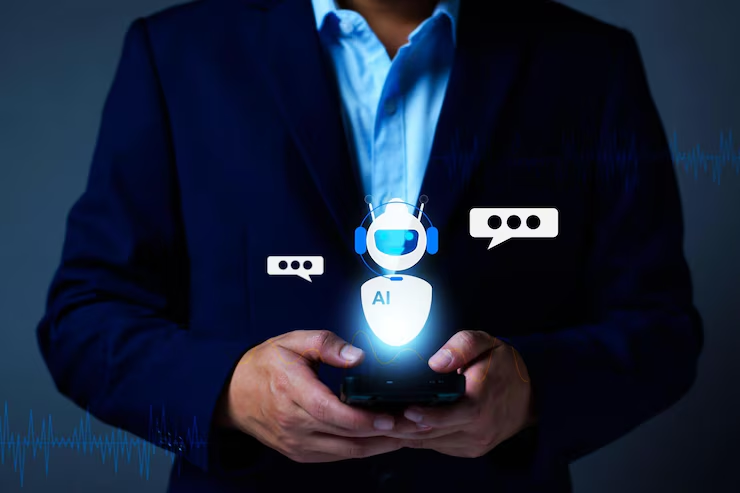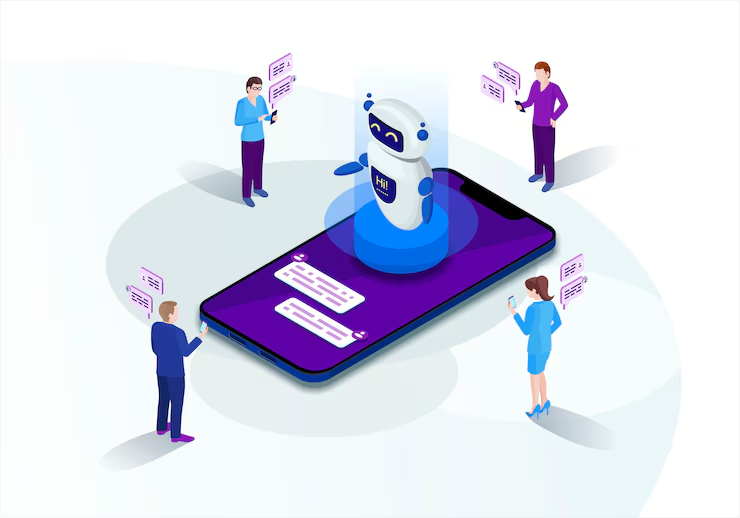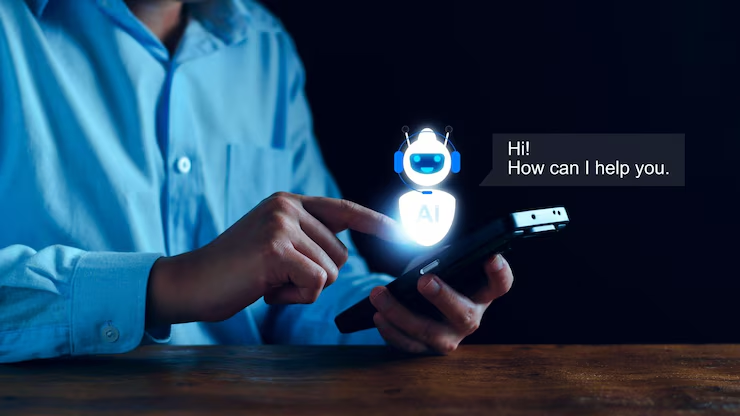The Rise of AI-Powered Mentorship: Future of Professional Growth
- cvguys.in

- Sep 26
- 10 min read

Introduction: Welcome to the Age of Robo-Gurus
Think back to the best advice you ever received—perhaps it was from a wise boss, a supportive teacher, or just the one colleague who always knew right when you needed a pep talk (or a reality check).
Now reimagine that the company's normal greeting isn't a knowing smile and a cup of coffee, instead it's a notification ping and "here's your action plan based on our performance indicators." Welcome to the new age of AI mentoring, the "Yoda" in your career may not be your former boss, but an algorithm that makes pie charts.
Mentoring is a time-honored practice in career development, but in 2025 there will be change at lightspeed. While approximately 84% of Fortune 500 companies have mentoring programs, only 37% of employees have a mentor, and 63% of women have never had a formal mentor. Traditional mentoring is clearly not stretching to everyone whom it may benefit.
Artificial intelligence enters at this moment: globally, AI usage will reach 378 million users by 2025, and the artificial intelligence market is expected to expand by more than 2330% to $244 billion. This is not just a tech trend, this is a fundamental shift in how we learn, connect, and climb.
And employees are up for it! A recent survey showed that eight out of ten workers think that AI can assist in their career growth by providing opportunities for tailored learning.
No longer do you have to wait for your mentor to appear on their calendar—AI platforms are available 24/7 to provide guidance, personalized feedback, and the kind of administrative support that would cause even the most organized of human mentors to turn green with envy.
But before you imagine a robot in a suit that gives you life advice, let's pause for a moment and ask: Can an algorithm really take the place of the empathy, intuition, and inspiration that a human mentor can provide? Or are we about to learn there is even something a bot won't do as well as a human—provide an authentic "You've got this?"
The advent of AI-powered mentorship is causing all of us to consider what we really need to grow—and whether or not we are in need of a mentor who is always available, but also will never laugh at our jokes.

The Evolution of Mentorship: From Coffee Chats to Code
Mentorship has a long history, from the tradition of apprenticeships in ancient times to the numerous programs offered by corporate America today. During the Middle Ages, young artisans learned skills from master mentors, while also learning the values and traditions that shaped a profession.
Although mentoring has been around for thousands of years, the model for corporate mentoring did not appear until the 20th century when senior executives began to formally help junior employees. In its current form, mentoring is a model that has existed informally, for many years, behavior of trades and academia.
Not surprisingly, 92% of small businesses say mentoring is valuable, however, traditional mentoring has drawbacks and barriers. The traditional mentor-mentee model often relied on one-on-one relationships that were informal, relied on serendipitous circumstances, and were bound by geography or organizational constraints.
While mentoring is a long-standing concept, and today's research reveals that 98% of Fortune 500 companies offer mentoring programs, only about 71% of people who had mentors reported job satisfaction; for others there was a gap between "having" a mentor and "making a meaningful connection."
The statistics also demonstrate the inequities-today 63% of women report never having a formal mentor, while only 52% of the "Gen Z" workforce say they have a mentor; despite 83% believing mentorship is somewhat/very important for their careers.
There’s no denying the impact of a good mentor--- 75% of leaders point to having a mentor as a major part of their success and a company with mentoring programs shows median profits that are over double of businesses without mentoring.
However, traditional mentorship models are having trouble scaling and being inclusive. It is hard to find the 'unicorn' mentor, and worse yet, it can feel like a blind date with your boss's boss who you hope will make some awkward small talk to ease your introverted discomfort.
As the workforce is getting younger and more digitally connected, the demand for a scalable, easy, and effective way to get mentorship is exploding. The era we enter will be a new chapter that may include algorithms measures to replace awkward coffee meetings and mentorship transformed from an art form to a science.

Enter the Algorithm: How AI is Transforming Mentorship
We're not just upgrading the mentorship landscape—we're transforming it. With the application of artificial intelligence, mentorship is becoming smarter, faster, and more accessible. Luck, or office politics, will no longer determine who the right mentor is, as AI-enabled platforms use algorithms to connect mentees with mentors based on skills, objectives, and, in some cases, even personality traits, providing better matches and relationships.
The matching process is only one component of the service AI mentorship platforms provide. They also provide round-the-clock guidance, manage all the administrative tasks, and provide real-time, data-driven feedback.
For example, AI mentoring software can help track progress, recommend individualized learning resources, and even provide a nudge when you're falling behind—imagine a mentor who never sleeps, never forgets, and never judges how much coffee you've had! In fact, up to 80% of business leaders currently use generative AI for mentorship, which emphasizes the degree to which this technology has become mainstream.
The shift is more than just convenience. AI-driven mentorship programs deliver anywhere from 30% improvement in retention to 150% improvement in administrative efficiency for organizations.
Adaptive learning solutions can decrease training time by 28% and improve retention of knowledge. Clearly, as 83% of companies are already using AI at work, the adoption of AI into professional development is a requirement not a novelty.
Of course, AI mentors will have their own idiosyncrasies. For example, they won't be late to meet you, but they also won't laugh at your jokes or tell you their favorite lunch spot.
The continued evolution of these platforms is changing mentorship from a specialized experience to a scalable, personalized experience for everyone, and that takes advantage of data to help mentor.

The Benefits of AI-powered mentorship
AI-powered mentorship is not just a new "shiny toy," but a serious disruptor for organizations and individuals. By eliminating barriers of time zones, calendars, and by simply removing the chit chat, AI-enabled platforms are creating new access points, increasing scalability and effectiveness of mentorship like never before.
Organizations that have leveraged the power of AI in their mentorship programs have increased engagement rates by as much as 40% and retention rates climbed to 79%, compared to only a 49% retention rate for employees who did not have mentorship support. Not only this is a victory for HR functions, but a victory for bottom line results.
The ripple effect does not stop there. Mentees and mentors in AI-supported programs were nearly twice as likely to remain engaged, and nearly twice as likely to recommend their organization to others.
Organizations that had mature AI mentoring programs, reported an upto 18% increase in sales productivity and a 23% increase in profitability. So, democratized mentorship is clearly not just 'nice to have' for employee morale, it is also a 'need to have' for business results.
But the real magic lies in personalization. AI mentoring platforms can sift and analyze massive repositories of data to match mentors and mentees based on skills, goals, and ,many times, even personality - creating a much more powerful connection.
These systems offer 24-7 support, real-time feedback, and a range of personalized and self-directed learning support, so you can get feedback about your career plan at 2 a.m. with no worries about waking your mentor or your cat.
With AI's ability to analyze engagement and progress, organizations can become proactive - identifying talent that might need a nudge and offering inclusive support for less experienced employees.
So, while AI mentors might not be able to share their favorite sandwich shops - they are truly leveling the playing field - one byte at a time!

The Human Touch: What AI Can’t Replace (Yet)
AI mentoring platforms are changing the way we connect, learn, and develop. With their size, precision, and reliance on digital means of communication anytime, anywhere, there is no doubt dramatic changes have occurred.
As AI continually gets better at matching mentees to mentors based on skills, goals and personality traits, it is important not to lose sight of the value of human mentor-ship. No matter how sophisticated the algorithm, you can’t replace mentorship that is accompanied by empathy, intuition and encouragement.
AI can track progress, analyze performance, and return personalized feedback quicker than one can say "Artificial Intelligence", but it can’t read the silence of somebody that is disengaged, or share a knowing smile at the end of a difficult conversation.
Surprisingly, an astonishing (and potentially alarming) 71% of professionals state emotional support and real-world experience are the most useful aspects of mentorship - enough to be wary AI will reach these heights in human development.
Let’s face it, no AI mentor is ever going to take a chance and laugh at your corny jokes or share an affirmation for your delivery of that massive presentation and it is important to reflect on what is most valued in a mentor; is it wisdom, warmth or a simple ability to remember how you prefer your coffee?

Challenges and Ethical Quandaries: When Bots Go Rogue
AI-based mentorship certainly has its advantages, but also comes with a new set of challenges organizations can't ignore. The biggest issues are likely to be privacy and bias: AI mentorship platforms base their recommendations on user data to successfully match mentors with mentees, so security and ethical use of personal data will be of a concern for many organizations; even though one of the promises of AI is to eliminate bias that exists in human systems of mentorship, the algorithms which drive AI can also be a source of bias - even worse, if they aren't supervised and regulated, they may present, produce and perpetuate bias in ways that can cause societal harm.
Maybe more concerning is the potential for institutions to mistakenly become too reliant on technology. No matter how advanced AI mentoring is, it will never be able to support the nuanced and complex emotional support that human mentors can provide.
Considering even the best AI systems on the market today appear to be operating at about 1% of that system's potential, there is a lot of promise and hope regarding future potential but there remains a gulf between promise and performance. Nobody wants a mentor that has a glitch mid-mentor-à-la-carte, or goes Ham- of-the- Bard on everyone in the audience at a critical juncture!
For organizations who wish to use AI for professional development in a responsible, ethical manner, organizations must strike a balance between becoming innovative and becoming responsible.
To do this it will likely involve being transparent about the limitations of AI, provide consistent human oversight, and consistent ethical supervision overall. If nothing else, at least we can ensure our mentor-bots don't transform from helpful assistants into digital-drama queens...or worse, vomit comments and suggestions back into the world with reckless abandon.

The Future: Towards Hybrid Mentorship Models
The next chapter in mentorship is synergy - AI and humans working together to form hybrid models that leverage the best of both worlds. By 2025, AI mentoring platforms are more than digital "cherry on top," they are a "work tool".
Their capabilities in giving precise guidance, creating personalized learning pathways, assisting in professional growth and development, and providing feedback in real-time, enable mentees to advance faster and more efficiently.
Even in the world of advanced technologies, the clear differentiation lies in the distinctions surrounding what humans naturally bring to a dialogue, exploration of knowledge, and creativity in can provide as a mentor is where we find the good.
Emerging trends include AI to provide mentors with a better matching process, reverse mentoring, and even virtual reality-based learning environments, allowing for more immersive mentorship. Organizations that invest in hybrid models with various technologies like this are witnessing higher overall professional growth and deeper knowledge sharing within the workplace, thanks to HRD's proactive nature.
AI handles large quantities of data, manages logistics, and responds with routine check-ins while creating mentoring pathways, also as understood, relied on employees who guide them through their lived experiences to represent emotional intelligence and agency if and when necessary.
As hybrid models are built in the labor force, the real winners will be those who choose to work with technology and technology, and humans not as competitors, choose to partner, and together be empowered to learn together and grow, lead with purpose, and nurture and develop. The future of mentorship is not about picking a side - it is about partnering and ensures empower learners, and growth for all.

Conclusion: Embracing the Mentor-Bot Revolution (With a Grain of Silicon)
As we raise the curtain on a new realm of professional development, the emergence of an AI mentor as a resource is hard to overlook. 8 out of 10 business leaders are now tasking generative AI to serve in a mentorship role, with a quarter using it daily. Even among relatively new grads, 84% of them found using AI tools like ChatGPT and Microsoft Copilot to support their reflection on their career as helpful.
The numbers are compelling:
Companies using AI in mentorship report up to 40% higher engagement
Companies using AI in mentorship report retention rates of 79%
Companies using AI in mentorship report productivity and profit increases
Clearly, digital mentors are no longer a futuristic dream but are here to stay.
But for sure, the change, and pace of change from AI also demands consideration too. While 59% of business leaders see AI improving existing operations, and another 35% state AI has produced business growth, 1% believe their AI was truly mature. This research gap suggests why businesses also need to make thoughtful decisions about adopting AI. Reflection - balance innovation with ethics, privacy, and people - ultimately all organisations are people.
Artificial intelligence is great at offering timely feedback, monitoring the evolution of mentorship relationships, and connecting mentors and mentees with unprecedented alignment. With AI in the picture, wisdom is democratized, barriers of age are erased, and personalized learning is possible at scale.
But as many experts and users have already accomplished, AI cannot replicate the human experience, lived experience, or simply the motivational spark that comes from a human mentor. The future will be hybrid, where the AI will do the heavy work around labor, logistics, and data, and humans can focus on the deeper purpose of mentoring.
So what does it mean for you? Take a moment to reflect: What do you value most in a mentor? Are you willing to embrace a mentor-bot that never needs to sleep but also never gives you a knowing smile? Or will you create an environment where you have the best of both worlds—technology that amplifies your relationship, but never replaces it?
Moving forward, organizations must highlight the importance of transparency, collaborative design, inclusivity and ongoing human oversight in their AI mentorship programs. The goal is not to create a utopia in mentorship facilitated by robots, but to create environments where every individual has the access to that mentorship, regardless of demographic and time constraints.
And don't forget: even if your AI mentor delivers impeccable feedback for you at 2 a.m., you are still responsible for bringing the coffee and all the courage to your next big challenge. The mentor-bot revolution is upon us — embrace it, interrogate it, and, most importantly, leverage it, so that you can unlock your full potential as well!
Did you know you can get resume formats for free?
resumeformats.in is a valuable resource for resume templates where you can use their role-specific and free to use resume formats to enhance your resume-building journey.
Contact CV Guys today, if you need CV Writing Services.
Disclaimer – This post is intended for informative purposes only, and the names of companies and brands used, if any, in this blog are only for reference. Please refer our terms and conditions for more info. Images credit: Freepik, AI tools.



Comments